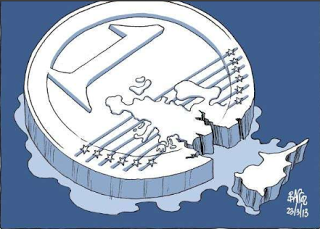The migration of refugees from conflict torn Libya has become a huge humanitarian crisis for European nations, especially Italy. But the solution to stemming the tide of thousands fleeing the region by vessels used by human traffickers isn’t the way.
EU to launch Mediterranean naval mission to tackle migrant crisis
EU ministers have agreed to launch a sea and air mission that could in its later phases destroy vessels used by human traffickers, which have carried an estimated 1,800 migrants to their deaths in the Mediterranean this year.
An intelligence-gathering operation will herald the mission’s first phase, with the UK expected to offer drones and surveillance equipment as a partial riposte to calls for it to take in more refugees.
In later phases, hostile vessels suspected of harbouring migrants could be boarded, searched, seized or disposed of in Libyan territory or international waters – as long as a chapter 7 UN resolution to authorise the use of force to do so is obtained first. [..]
The mission’s rules of engagement have still to be thrashed out and one diplomat described the deployment of such forces as “the next step in terms of operational details”. The level of collateral damage considered acceptable would also be discussed after the mission was up and running, he said.
The operation will have its headquarters in Rome and be run by an Italian rear admiral, Enrico Credendino, with an initial year-long mandate.
Concerns about the militarisation of the migrants issue will probably be raised at the UN, though, with Libya already describing the mission as very worrying, citing concerns over its potential to mistakenly target fishermen’s boats.
Refugee rights groups fear that bombing the escape routes of people fleeing for their lives from Syria, Eritrea and west Africa – where most migrants begin their journeys – will simply lead to more deaths, away from the public spotlight.
During his interview with Democracy Now!‘s Amy Goodman in London’s Ecuadoran Embassy, Wikileaks’ founder Julina Assange revealed that Wikileaks has released documents that detail the EU plans for the military intervention against “refugee boats” in Libya and the Mediterranean
Today, WikiLeaks is releasing two classified EU documents, outlining the planned military intervention against boats travelling from Libya to Italy. The more significant of the two documents was written by the combined military defence chiefs of the EU member states. The plan was formally approved by representatives from all 28 countries on 18 May 2015.
Importantly, one of the documents acknowledges that “the political End State [of the military intervention] is not clearly defined” and recommends that the European Commission issue further guidance.
The documents lay out a military operation against cross-Mediterranean refugee transport networks and infrastructure. It details plans to conduct military operations to destroy boats used for transporting migrants and refugees in Libyan territory, thereby preventing them from reaching Europe. The EU member states’ military chiefs advice is that there is a need to:
“[draw] on the full range of surveillance, intelligence and information capabilities available to MS [member states] and Partners, and supported by Brussels (inter alia EEAS [European External Action Service] Single Intelligence Analysis Capacity – SIAC)“.
The plan also acknowledges the possibility of EU military use of force against groups such as ISIL “within the Libyan sovereign area”:
“the threat to the force should be acknowledged, especially during activities such as boarding and when operating on land or in proximity to an unsecured coastline, or during interaction with non-seaworthy vessels. The potential presence of hostile forces, extremists or terrorists such as Da’esh [ISIL] should also be taken into consideration“.
The documents mark a departure from previous EU military strategy in its overt targeting of civilian infrastructure in Libya. Numerous EU countries, including Belgium, Bulgaria, Denmark, France, Greece, Italy, the Netherlands, Romania, Spain, Sweden and the United Kingdom participated in NATO-led air strikes on Libya in 2011.
Transcript can be read here

 As the
As the  On Wednesday it was reported that some greedy
On Wednesday it was reported that some greedy 
